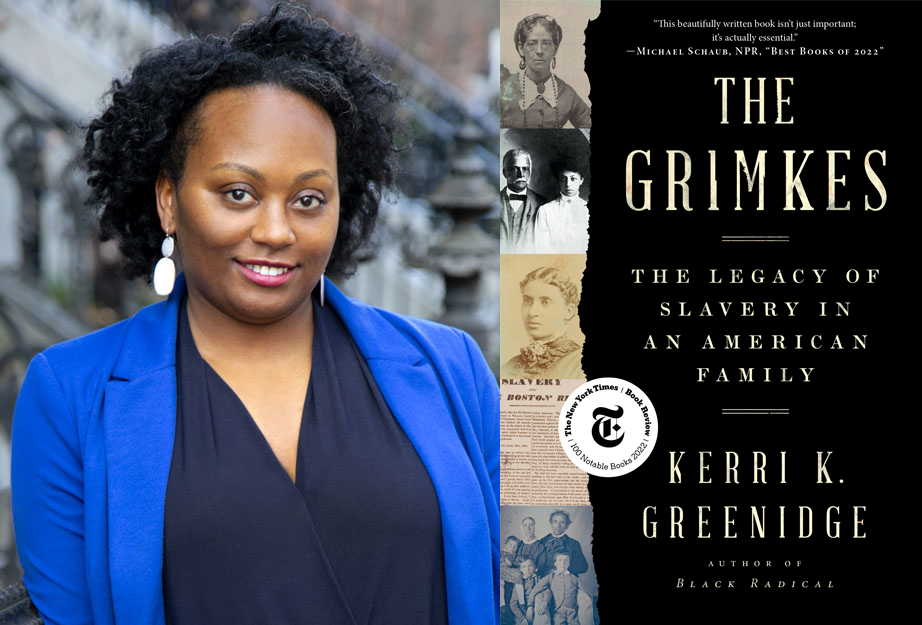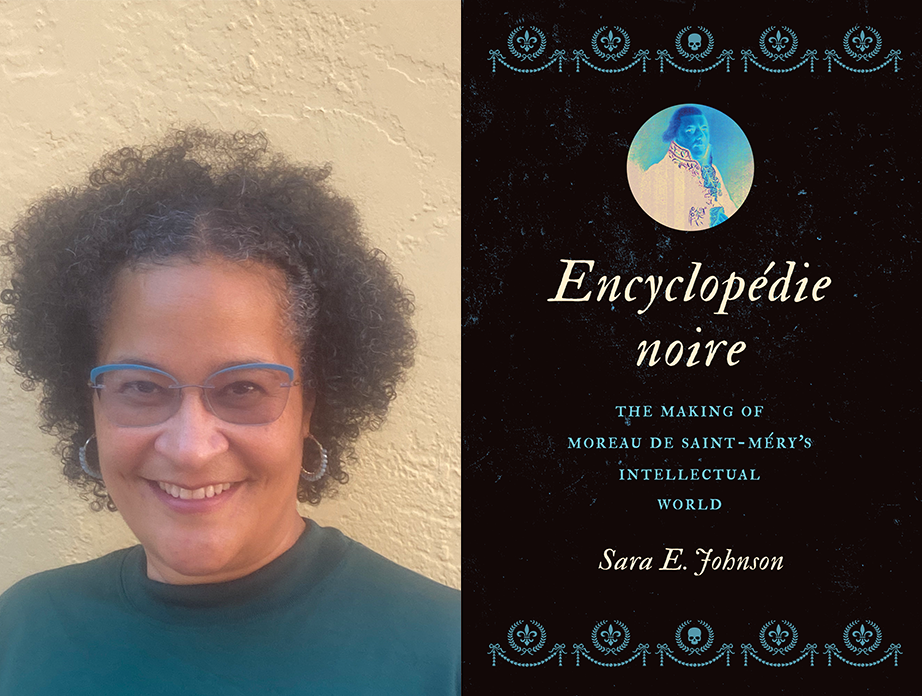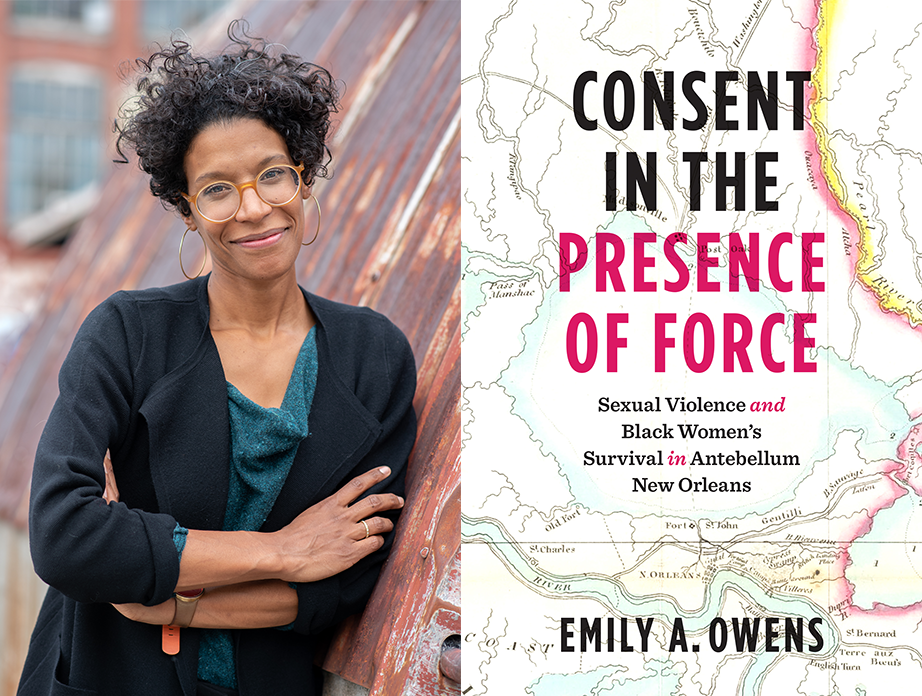Yale Announces 2024 Frederick Douglass Book Prize Finalists
New Haven, Conn.— Yale University’s Gilder Lehrman Center for the Study of Slavery, Resistance, and Abolition today has announced the finalists for the twenty-sixth annual Frederick Douglass Book Prize, one of the most coveted awards for the study of the African American experience. Jointly sponsored by the Gilder Lehrman Institute of American History in New York City and the Gilder Lehrman Center for the Study of Slavery, Resistance, and Abolition at Yale University’s MacMillan Center, this annual prize of $25,000 recognizes the best book written in English on the topics of slavery, resistance, or abolition copyrighted in the preceding year.
The finalists for the 2024 prize are: Kerri K. Greenidge for “The Grimkes: The Legacy of Slavery in an American Family” (Liveright Publishing Corporation); Sara E. Johnson for “Encyclopédie Noire: The Making of Moreau de Saint-Méry’s Intellectual World” (Omohundro Institute of Early American History and Culture and University of North Carolina Press); and Emily A. Owens for “Consent in the Presence of Force: Sexual Violence and Black Women’s Survival in Antebellum New Orleans” (University of North Carolina Press).
The winner will be announced following the Douglass Prize Review Committee meeting in the fall, and the award will be presented at a celebration at Trinity Church Wall Street in New York City on February 11, 2025.
From a total of 82 submissions, the finalists were selected by a jury of scholars that included Amy Murrell Taylor (Chair), T. Marshall Hahn Jr. Professor of History at the University of Kentucky; Natasha J. Lightfoot, Associate Professor of History at Columbia University; and John K. Thornton, Professor of History and African American Studies at Boston University.
The jury’s descriptions of the three finalists follow.
Kerri Greenidge’s beautifully written “The Grimkes” is a transformative account of a long-celebrated American family. Alongside the sisters Angelina and Sarah and their white kin, it is the Black Grimkes—Nancy, Archie, Frank, John, Charlotte Forten, and Angelina Weld Grimke—who take center stage. Telling a fuller, richer story of the Grimkes across four generations, Greenridge brings remarkable research and a sensitive reading of evidence to bear on a story that adds up to much more than a retelling of one family’s saga. The Grimkes is instead an unsparing and gripping meditation on the long reach of slavery well into the 20th century, its legacy perpetuating the privilege of some and the trauma of many others.
Moreau de Saint-Méry was one of the most diligent and thoughtful of French writers on many issues of colonial history in the late eighteenth century. His description of Saint-Domingue (the present-day Haiti) was massive and is still a critical primary source for that colony on the eve of the Revolution. Sara Johnson’s “Encyclopédie Noire” takes a careful view of Saint-Méry’s work, his life, his outlook, and above all his sources and their interpretation. In this remarkable study of Saint-Méry’s connections and attitudes, Johnson’s meticulous collection of material serves as what she calls a communal biography of him written by others. Both rigorously researched and fluidly and often cleverly written, this is a real monument of scholarship, crossing many disciplines and exercising well-reasoned judgments.
Emily Owens’ “Consent in the Presence of Force” is a well-written and theoretically daring take on the history of the so-called fancy trade and sexuality in antebellum New Orleans slavery. At its heart is a critical question: How did sexual violence become so ordinary? The analysis pivots on Owens’ conception of consent as something that enslaved women complicatedly gave to their white male sexual aggressors as part of a transaction, or contract, from which they derived better status in enslavement or eventual freedom. Fluid prose, careful reading of fraught legal records, and theorizing that evidences a consistent mind at work on the page, all combine to make a very familiar subject—namely rape as a building block of slavery—appear reinvented anew.
The Frederick Douglass Book Prize was established by the Gilder Lehrman Institute of American History and the Gilder Lehrman Center in 1999 to stimulate scholarship in the field by honoring outstanding accomplishments. The award is named for Frederick Douglass (1818–1895), an enslaved person who escaped bondage to emerge as one of the great American abolitionists, reformers, writers, and orators of the nineteenth century.
The mission of the Gilder Lehrman Center for the Study of Slavery, Resistance, and Abolition (GLC) is to support academic excellence in the study of slavery and its enduring legacies, make this knowledge freely available to the public, and foster work toward social justice. Launched in 1998 through contributions from philanthropists Richard Gilder and Lewis E. Lehrman, the GLC is affiliated with the Whitney and Betty MacMillan Center for International and Area Studies at Yale University. The Center supports research fellowships, the Frederick Douglass Book Prize, scholarly working groups, publications, free public programs, and educational workshops for secondary school teachers and students, domestic and international. For further information and to find out how you can support the continuing work of the GLC, visit glc.yale.edu, e-mail: gilder.lehrman.center@yale.edu or call (203) 432-3339.
The Gilder Lehrman Institute of American History was founded in 1994 by Richard Gilder and Lewis E. Lehrman, visionaries and lifelong supporters of American history education. The Institute is the leading nonprofit organization dedicated to K–12 history education while also serving the general public. Its mission is to promote the knowledge and understanding of American history through educational programs and resources. As a 501(c)(3) nonprofit public charity, the Gilder Lehrman Institute of American History is supported through the generosity of individuals, corporations, and foundations. The Institute’s programs have been recognized by awards from the White House, the National Endowment for the Humanities, the Organization of American Historians, the Council of Independent Colleges, and the Daughters of the American Revolution. For further information, visit gilderlehrman.org or call (646) 366-9666.


